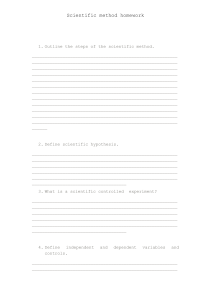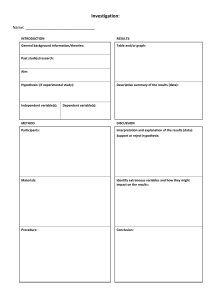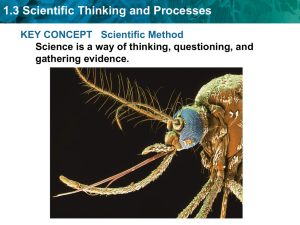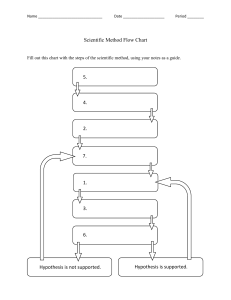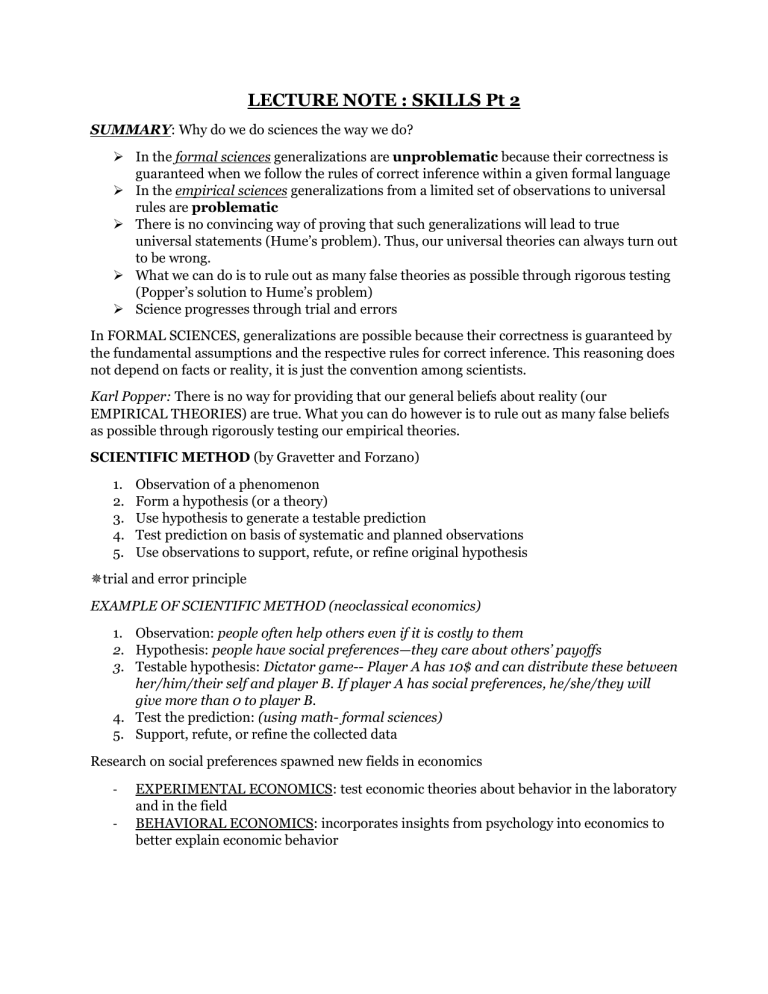
LECTURE NOTE : SKILLS Pt 2 SUMMARY: Why do we do sciences the way we do? In the formal sciences generalizations are unproblematic because their correctness is guaranteed when we follow the rules of correct inference within a given formal language In the empirical sciences generalizations from a limited set of observations to universal rules are problematic There is no convincing way of proving that such generalizations will lead to true universal statements (Hume’s problem). Thus, our universal theories can always turn out to be wrong. What we can do is to rule out as many false theories as possible through rigorous testing (Popper’s solution to Hume’s problem) Science progresses through trial and errors In FORMAL SCIENCES, generalizations are possible because their correctness is guaranteed by the fundamental assumptions and the respective rules for correct inference. This reasoning does not depend on facts or reality, it is just the convention among scientists. Karl Popper: There is no way for providing that our general beliefs about reality (our EMPIRICAL THEORIES) are true. What you can do however is to rule out as many false beliefs as possible through rigorously testing our empirical theories. SCIENTIFIC METHOD (by Gravetter and Forzano) 1. 2. 3. 4. 5. Observation of a phenomenon Form a hypothesis (or a theory) Use hypothesis to generate a testable prediction Test prediction on basis of systematic and planned observations Use observations to support, refute, or refine original hypothesis trial and error principle EXAMPLE OF SCIENTIFIC METHOD (neoclassical economics) 1. Observation: people often help others even if it is costly to them 2. Hypothesis: people have social preferences—they care about others’ payoffs 3. Testable hypothesis: Dictator game-- Player A has 10$ and can distribute these between her/him/their self and player B. If player A has social preferences, he/she/they will give more than 0 to player B. 4. Test the prediction: (using math- formal sciences) 5. Support, refute, or refine the collected data Research on social preferences spawned new fields in economics - EXPERIMENTAL ECONOMICS: test economic theories about behavior in the laboratory and in the field BEHAVIORAL ECONOMICS: incorporates insights from psychology into economics to better explain economic behavior
